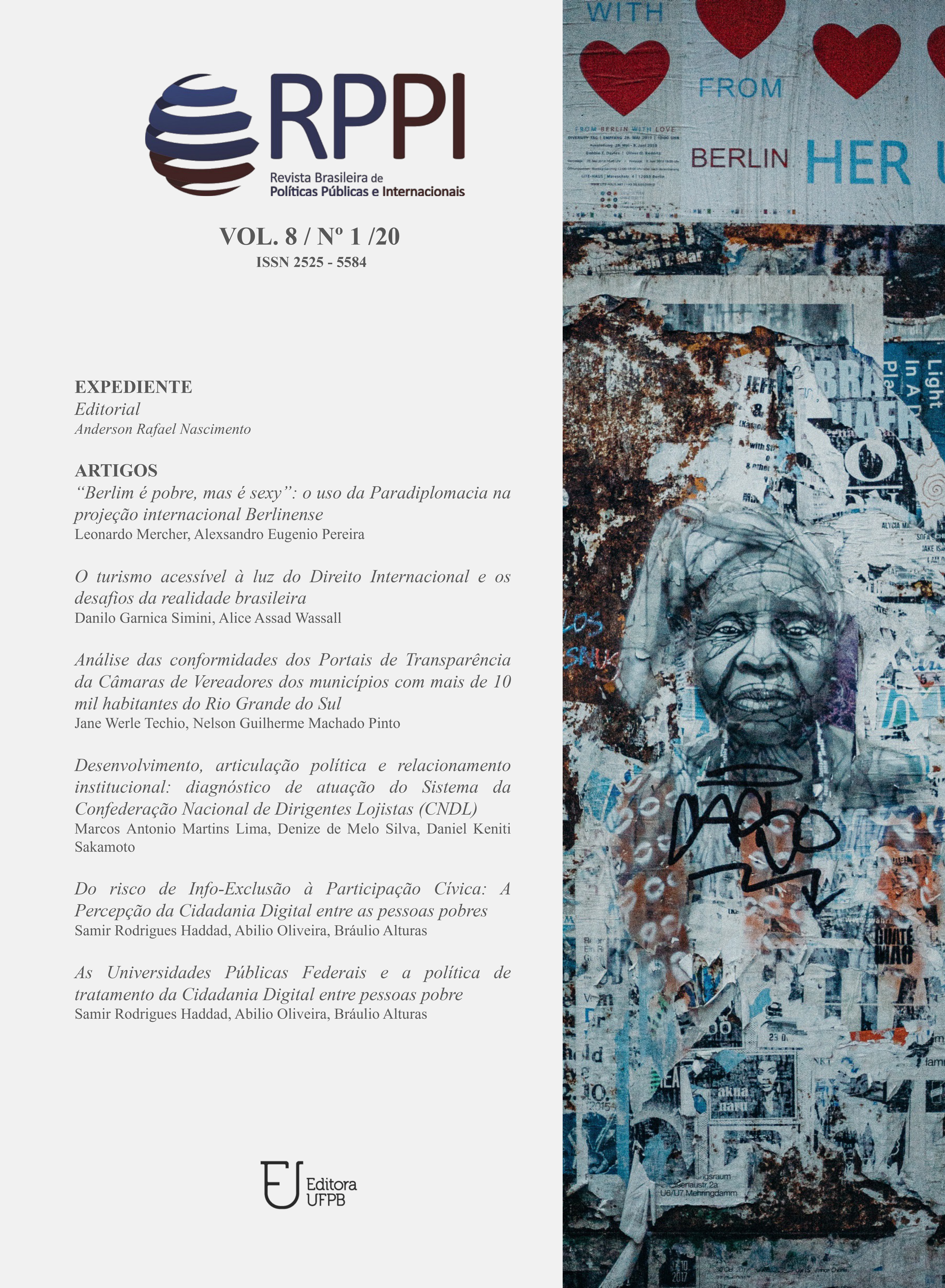“BERLIN IS POOR, BUT SEXY”: APPLYING PARADIPLOMACY IN THE BERLINER INTERNATIONAL PROJECTION
DOI:
https://doi.org/10.22478/ufpb.2525-5584.2023v8n1.63280Keywords:
Paradiplomacy, Public Policy, BerlinAbstract
Given the advance of research on paradiplomacy as public policy, this paper seeks to investigate the model of strategic image projection from Berlin after its reunification, in 1990. Berlin is chosen because the city illustrates a paradiplomacy that remains with few changes in thirty years, even in political party alternation scenarios. To identify which values and strategies and which social sectors would be present in the city's paradiplomatic action, the paradiplomacy analysis model (APD) is used, which guides data collection in five dimensions of explanatory variables: the dimension of management policy; the institutional; the market; the international; and the epistemic. The main results obtained are: I) a consensus of managers to redefine the projected image of Berlin, from a city of conflicts and social problems to a contemporary city of financial opportunities; II) create urban devices that support this new image, such as the international airport and the changes in Potsdamer Platz and Alexanderplatz; III) replicate its good practices from international networks of cities and higher education.
Downloads
Downloads
Published
Issue
Section
License
Copyright (c) 2023 Leonardo Mercher, Alexsandro Eugenio Pereira

This work is licensed under a Creative Commons Attribution 4.0 International License.
Autores que publicam nesta revista concordam com os seguintes termos:- Autores mantém os direitos autorais e concedem à revista o direito de primeira publicação, com o trabalho simultaneamente licenciado sob a Licença Creative Commons Attribution que permite o compartilhamento do trabalho com reconhecimento da autoria e publicação inicial nesta revista.
- Autores têm autorização para assumir contratos adicionais separadamente, para distribuição não-exclusiva da versão do trabalho publicada nesta revista (ex.: publicar em repositório institucional ou como capítulo de livro), com reconhecimento de autoria e publicação inicial nesta revista.
- Autores têm permissão e são estimulados a publicar e distribuir seu trabalho online (ex.: em repositórios institucionais ou na sua página pessoal) a qualquer ponto antes ou durante o processo editorial, já que isso pode gerar alterações produtivas, bem como aumentar o impacto e a citação do trabalho publicado (Veja O Efeito do Acesso Livre).




_.jpg)






.png)


.jpg)
_.png)
